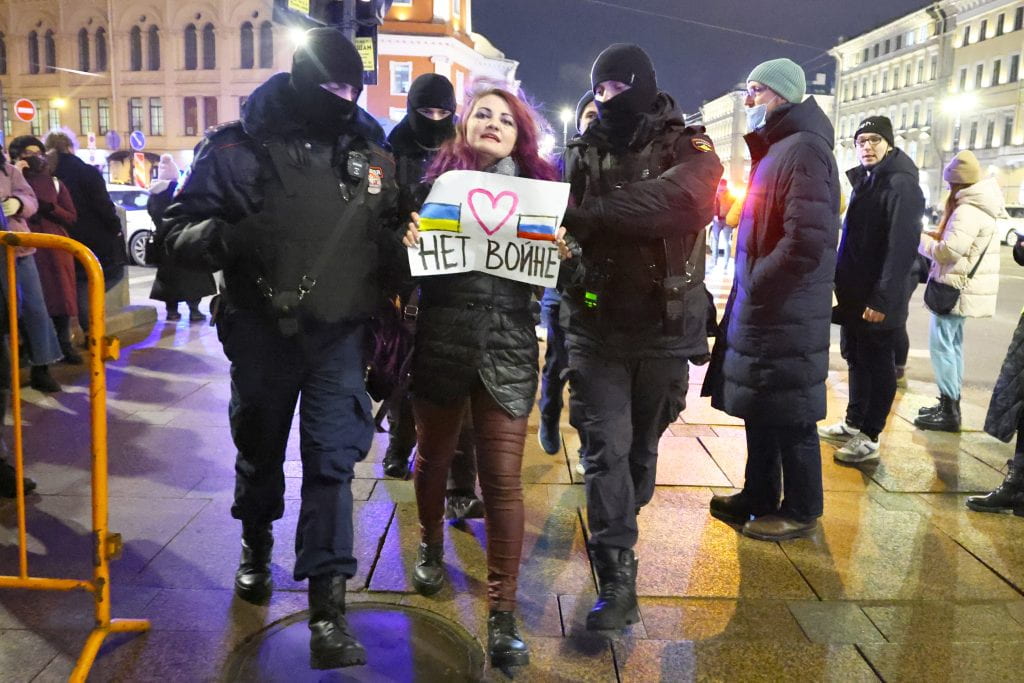By Brian Whitmore

The contrast could not have been sharper. On one hand, there was the autocratic Belarusian ruler Alyaksandr Lukashenka warning that the Western response to Russia’s invasion of Ukraine was pushing Moscow “toward a Third World War.”
Lukashenka’s remarks came shortly after a widely criticized referendum that, in addition to allowing him to stay in power until 2035, sheds Belarus’s status as a nuclear-free country, opening the door for Vladimir Putin to deploy nuclear weapons there. His statement also came just days after Putin put Russia’s nuclear forces on high alert in response to Western sanctions and what he called “aggressive statements” by NATO.
And then there was Sviatlana Tsihanouskaya. As the Putin-Lukashenka axis of unhinged autocrats engaged in tag-team nuclear blackmail, the exiled Belarusian opposition leader was the picture of calm dignity, moral clarity, and steely resolve.
In a video posted on Twitter on March 1, Tsihanouskaya showed us the other Belarus. Wearing a t-shirt reading “Long Live Belarus” and “Glory to Ukraine’,” Tsihanouskaya assailed Lukashenka for joining Putin’s “illegal, immoral, and unprovoked invasion of Ukraine” and for “turning our country into a huge aircraft carrier for this terrible war against our brotherly neighbor.” She added that “the overwhelming majority of Belarusians do not want this war,” stressing that “we do not want to be complicit in this horrendous crime against our neighbor.”
Declaring that “now we must all make our choice,” Tsihanouskaya told Belarusian soldiers who were deployed to Ukraine “do not follow illegal orders. Change sides and join the Ukrainian troops.”
She praised the Belarusian volunteers who have formed units to resist Russia’s aggression alongside the Ukrainians. She applauded the Belarusian hacker collective called the Cyber Partisans, who have twice hacked the country’s rail system in an effort to disrupt Russian troops moving into Ukraine. And she commended the Belarusians at home who risked arrest or worse to come out in cities across the country to protest the war.







